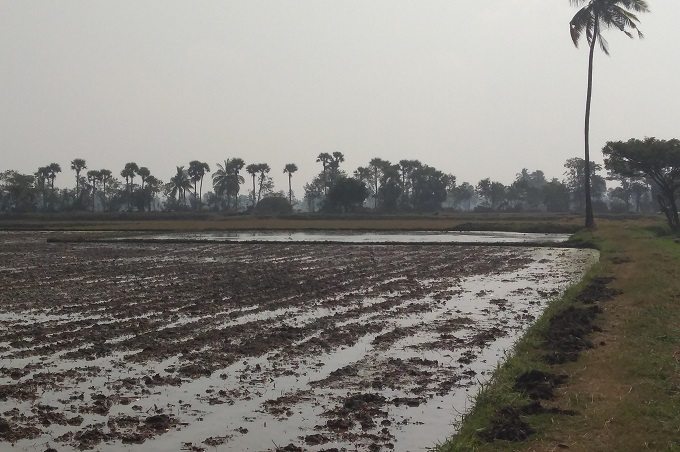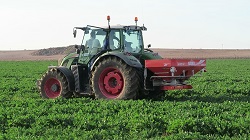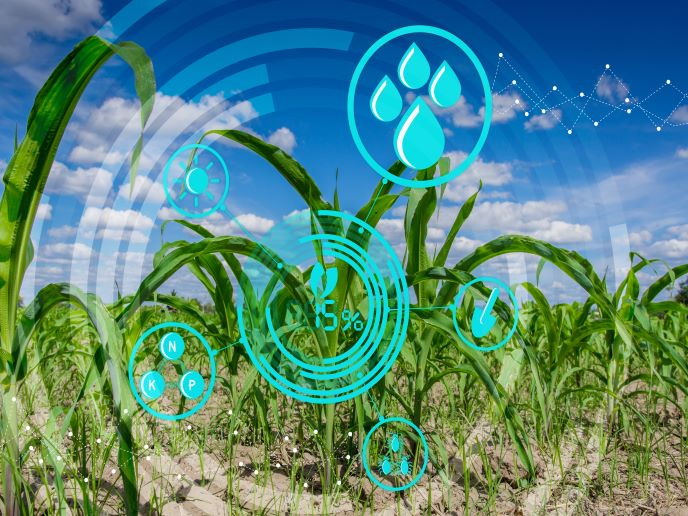New seed treatment to overcome soil salinity and improve global food security
The excessive concentration of soluble salts in soil, known as saline soil, has a negative effect on plants’ uptake of nutrients and water(opens in new window). A headache for the world’s agricultural industry, the result is reduced crop growth and yield. Affecting about 20 % of cultivated land worldwide, soil salinity constitutes a global challenge for the agricultural industry, but is especially harmful for small famers and rural communities(opens in new window) who suffer greatly from the reduced crop yield caused by saline soil and have few means to minimise its impact or seek solutions to address it.
Novel seed treatment for saline soils
The Israeli agtech startup, SaliCrop Ltd(opens in new window), has developed a break-through seed treatment for saline soil and salty water. Using a unique wet chemistry process that stimulates an epigenetic reaction to saline conditions at seed stages, it is a non-GMO treatment that can be tailored to specific crop varieties. SaliCrop has already completed several successful proof of concept lab and field trials with an average of 12 - 30 % increase in crop yield under saline conditions across a range of leading vegetable and grain crops. The company has now started the process of making the product market ready by conducting a feasibility study under the EU’s SME Instrument Phase 1 Programme. “The overarching goal of the SALICROP project was the development of a sound business plan, the first step towards being a global leader in seed production in saline conditions,” explains project coordinator and CEO of SaliCrop, Dotan Borenstein. Specifically, the project conducted feasibility studies with technological, market, and financial objectives.
Successful field trials
Three experiments were carried out in Israel in the project’s five-month duration, two with capsicum and one with wheat. Crops were tested under saline conditions with treated seeds and non-treated seeds, and the results were compared to a control group growing under normal conditions. In all cases, results showed that for crops in saline conditions, those with treated seeds fared better than non-treated seeds. Large-scale field trials were also completed in India, which Borenstein emphasises as a key market for SaliCrop. “Rice is the dominant crop in India, and the country is one of the world’s biggest producers of rice. However, like many other crops, it is salt sensitive. Many of India’s coastal areas are grappling with substandard yields because of soil salinity. In fact, market research has uncovered that in India, despite its enormous area of rice production, yield per hectare is one of the lowest globally.” Between July and November 2019, the SALICROP project executed field trials in Maharashtra, India, with a local rice variety commonly used by small holders. The monsoon in India in 2019 was uncommonly long, lasting well into October. This meant that much of the excess salt in the soil was washed away, which was good news for the farmers, but could skew the results for the planned field trials dependent on saline soil. “In spite of these better-than-expected saline conditions, SaliCrop-treated seeds for the variety yielded 14 % more than the untreated seeds,” reports Borenstein.
Getting ready for the market
In addition to the field trials, Borenstein explains that the SALICROP project carried out an in-depth study of the market dealing with soil salinity and reached out to key customers and stakeholders. “We met with seed crop developers and distributors as well as governmental agricultural agencies and global aid organisations in India and Africa, to evaluate the feasibility of providing treatment for smallholder farmers.” For Borenstein, SaliCrop is more than a means to improving proving crop yield; it’s a step on the way to meeting the Sustainable Development Goal(opens in new window) of ending hunger and achieving worldwide food security.







